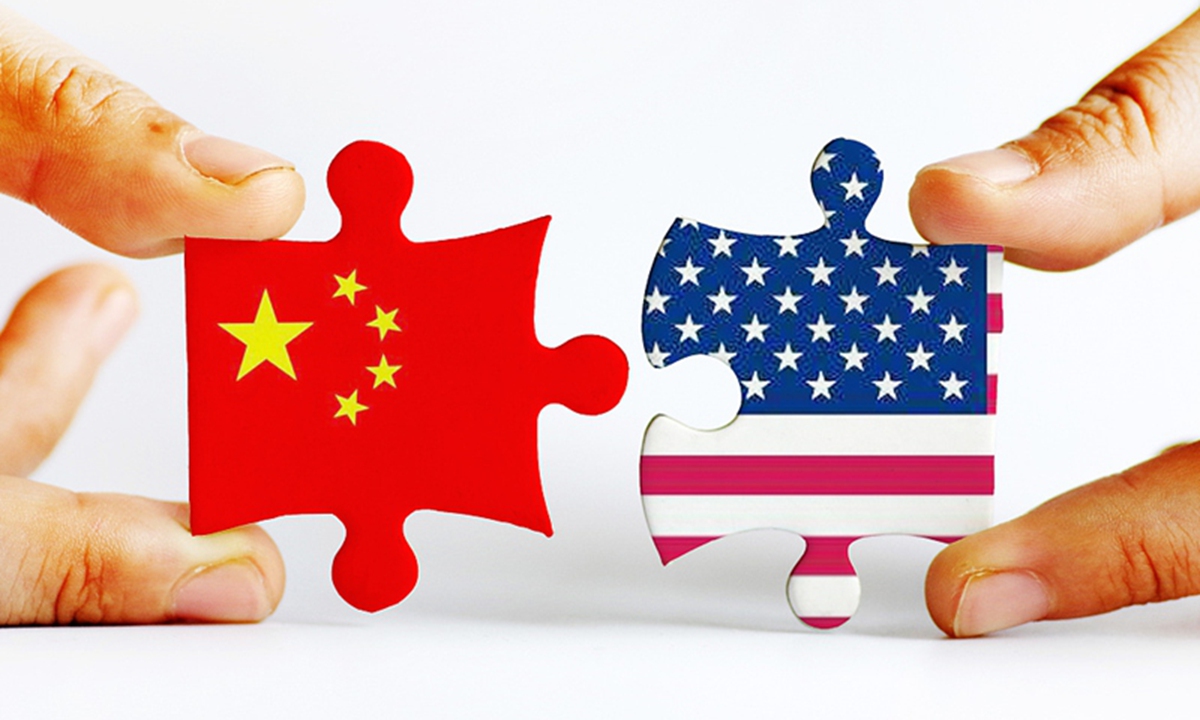
China US Photo:VCG
China and the US on Friday signed a protocol to amend and extend the Agreement Between the United States and China on Cooperation in Science and Technology. They have agreed to extend the Agreement for additional five years, effective from August 27, 2024, according to China's Ministry of Science and Technology, the Xinhua News Agency reported.
On January 31, 1979, then Chinese leader Deng Xiaoping and the 39th US president Jimmy Carter signed the agreement during Deng's visit to the US. It was one of the first intergovernmental agreements signed between the two countries following their establishment of diplomatic relations.
Since then, it has renewed approximately every five years, paving the way for sci-tech exchanges between the two countries. The agreement was extended for 6 months in August last year, and again in February this year.
"The renewal of the agreement sends a positive signal and holds profound significance for China-US technological cooperation and global technological advancement," Wang Peng, an associate research fellow at the Beijing Academy of Social Sciences, told the Global Times on Friday.
Wang said that this renewal signifies both parties' commitment to maintaining and deepening exchanges and collaboration in the technology sector. Since its inception in 1979, the agreement has served as a cornerstone for cooperation between the two nations, facilitating extensive collaboration across various fields.
Wang noted that the renewal will create more opportunities and platforms for cooperation, promote technological innovation, and foster talent cultivation, ultimately advancing the joint development of the technological sectors in both countries.
On a global scale, this collaboration will facilitate the sharing of technological resources and inject new momentum into global technological progress, Wang added.
Li Yong, a senior research fellow at the China Association of International Trade, told the Global Times on Friday that this agreement has created substantial opportunities for technological exchanges between the two countries. It not only aligns with the mutual interests of both parties but also meets the expectations of the international community.
Potential for China-US technological cooperation can be seen in multiple fields, especially in fundamental science, advanced technology research and development, and innovative applications, Li said.
China has advantages in market scale and consumer demand, while the US leads in technological innovation and research. If the two countries can engage in deep cooperation in these areas, it will drive global technological advancement and benefit all of humanity, Li said.
The extension of the agreement comes at a time when the US has intensified its technology suppression against China, particularly concerning semiconductor exports.
"Science knows no borders. Politicizing technology can only transform what should be a collaborative effort for human progress into a tool for political struggle, ultimately harming all parties involved," Li said.
Responding to the extension over the agreement, a Chinese scientist in the computer science sector told the Global Times on Friday that China-US technological cooperation is mutually beneficial when it is cooperative, but harmful to both sides when it is confrontational.
The Chinese government will continue to deepen international scientific and technological cooperation between governments and civil society, as well as expand cultural and technological exchanges, Chinese Minister of Science and Technology Yin Hejun said in September.
China has established scientific and technological cooperation ties with over 160 countries and regions, and signed 118 intergovernmental agreements on such cooperation, according to Yin.




